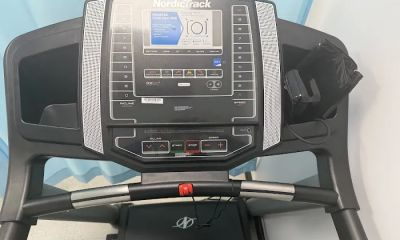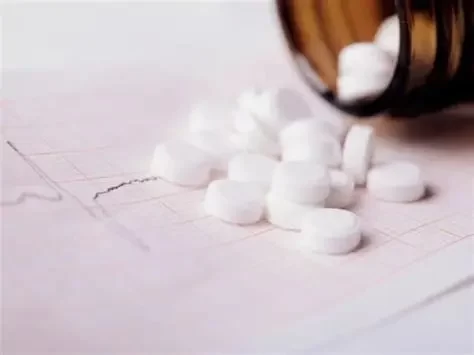Nitrates for Angina: Relieving Chest Pain Effectively
Angina, characterized by chest pain or discomfort, is a common symptom of heart disease. It occurs when the heart muscle doesn’t get enough oxygen-rich blood, leading to discomfort or pain in the chest area. One of the most effective treatments for angina is the use of nitrates, a class of medication that helps alleviate chest pain. In this article, we’ll explore how nitrates work to relieve angina and provide you with a better understanding of their benefits and potential side effects.

1. What is Angina and Why is it Important to Address?
Angina is often a sign that the heart is not receiving enough oxygenated blood, which is typically due to blocked or narrowed coronary arteries. The pain or discomfort associated with angina can range from mild to severe and can occur during physical activity or times of stress. However, it’s crucial to understand that while angina is a common condition, it’s also a serious warning sign that the heart’s health needs attention.
Ignoring angina symptoms can lead to more severe heart problems, such as heart attacks. That’s why managing and treating angina effectively is essential to maintaining a healthy heart and preventing further complications. One of the most reliable treatments for alleviating angina symptoms is the use of nitrates.
Pramod Sanghi, MD - Cardiologist Parkchester Bronx
1888 westchester ave
1888 Westchester Ave Suite #4, Bronx, NY 10472, USA

2. How Do Nitrates Work for Angina Relief?
Nitrates, such as nitroglycerin, are commonly prescribed to treat angina. They work by relaxing and dilating blood vessels, which improves blood flow to the heart muscle. This increased blood flow allows the heart to receive more oxygen, reducing the pain or discomfort caused by angina.
When a person experiences chest pain due to angina, nitrates help by widening the coronary arteries, which are typically narrowed due to plaque buildup. This action reduces the heart’s workload and allows it to receive the oxygen it needs. In turn, this relieves the painful sensations associated with angina and restores more normal heart function.
2.1 Immediate Relief
Nitrates can provide rapid relief from angina pain. If someone experiences a sudden onset of chest pain, they can often take a dose of nitrate medication, and the pain will subside within minutes. This makes nitrates a go-to option for quick and effective angina relief.
2.2 Long-Term Angina Management
In addition to immediate relief, nitrates can also be used as a part of a long-term angina management plan. Regular use of nitrate medications, as prescribed by a healthcare provider, can help prevent angina episodes, allowing individuals to manage the condition more effectively and reduce the frequency of chest pain.
3. Types of Nitrate Medications for Angina
There are several forms of nitrate medications available, each with its own specific use and benefits. Let’s take a look at the most common types:
3.1 Sublingual Nitroglycerin Tablets
Sublingual nitroglycerin tablets are typically used for immediate relief of angina. These tablets dissolve under the tongue, allowing the medication to be absorbed quickly into the bloodstream. This provides rapid relief from chest pain, often within a few minutes.
3.2 Nitroglycerin Patches
For long-term management, nitroglycerin patches are commonly used. These patches are applied to the skin and release a controlled amount of nitrate medication throughout the day. This helps prevent angina attacks and keeps the blood vessels dilated, improving overall heart health.
3.3 Isosorbide Dinitrate and Isosorbide Mononitrate
Isosorbide dinitrate and isosorbide mononitrate are other types of nitrate medications used for angina treatment. These medications are typically taken in pill form and provide a longer-lasting effect. They work similarly to nitroglycerin but are designed for extended use throughout the day to prevent angina attacks.
4. Side Effects of Nitrates
While nitrates are effective for treating angina, they can also cause some side effects. The most common side effect is a headache, which occurs due to the widening of blood vessels. Other possible side effects include dizziness, lightheadedness, and a drop in blood pressure.
It’s important to monitor for side effects and work closely with a healthcare provider to adjust the dosage or try alternative treatments if needed. If you experience severe side effects such as fainting, it’s important to seek medical attention immediately.
5. Real-Life Story: How Nitrates Helped Manage Angina
Consider the story of Tom, a 58-year-old man who had been living with angina for several years. His angina episodes were frequent, especially when he engaged in physical activity or became stressed. After consulting with his doctor, Tom was prescribed nitroglycerin tablets for quick relief and a nitroglycerin patch for long-term prevention. Within a few weeks, he noticed a significant reduction in the frequency of his angina attacks and felt more confident in managing his heart condition.
Tom’s experience highlights how nitrates can play a pivotal role in both managing immediate symptoms and preventing future angina episodes, improving overall quality of life for individuals with heart conditions.
6. Conclusion: Nitrates as an Effective Solution for Angina Relief
Nitrates are a proven and effective treatment for angina, offering immediate relief from chest pain and long-term prevention of future episodes. By relaxing and dilating blood vessels, nitrates help the heart receive more oxygen, which reduces the pain associated with angina. With the variety of nitrate medications available, individuals can work with their healthcare provider to find the best option for their needs.
If you’re looking for more information on managing angina or need support with heart health, visit HeartCare Hub for the latest products, services, and expert advice.






















Chester County Cardiology Association
chester county cardiology
142 Wallace Ave Suite 109, Downingtown, PA 19335, USA